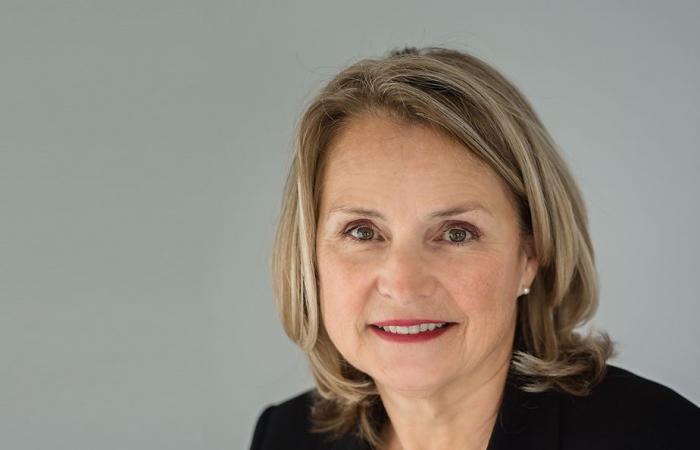You have to reckon with them: many seniors insist on paying cash.
Posted at 5:00 a.m.
A close example, therefore real: the journalist’s mother.
She is an octogenarian lady, intelligent and curious about everything, with no cognitive problems. But she never had a computer or managed to master the Internet, the electronic tablet, or even the cell phone. Paralyzed by cloning suffered without much damage a dozen years ago, she has hardly used a bank card anymore. Her annual credit card transactions can be counted on one finger: the annual maintenance of her car, which she kept for more than 20 years and which she recently sold.
Except two or three times in the presence of one of her children, she has never withdrawn money from the ATM. Every three weeks, she makes a withdrawal at her branch – always at the counter, presenting a bank book that would not look out of place in an eco-museum.
Everything is paid in cash: groceries, clothes, purchases at the pharmacy. Even the dentist.
She spends little, it’s true. But almost always in cash.
She’s not the only one.
“Without being ageist, some seniors in an age category have been used to cash and are not familiar with computers,” notes Gisèle Tassé-Goodman, president of Réseau FADOQ. “At a restaurant for their coffee, their donut, they prefer to pay with a $20 bill than to take the credit card or simply pay without contact. »
In this attachment to banknotes, we discern an element of loyalty to traditions, but we also implicitly perceive the reassuring contact with concrete objects.
Gisèle Tassé-Goodman draws an analogy with manipulating the pages of a real book rather than sliding a finger across the smooth, cold surface of a tablet.
“People have control of their $20 in their hands, in their wallet,” she describes.
Using cash is not just about notes. You also have to take into account (with) the currency.
A scene captured in mid-June in a supermarket in eastern Montreal: a vigorous septuagenarian pays cash for a few items at the checkout counter. The cashier counts and takes from the customer’s outstretched hand the coins that will make the exact payment.
“I do this often, and it makes me happy,” says Danielle, the cashier.
No technological deficiency here: the man carries a smartphone in a case hanging from his waist.
For many seniors, this is not so much a bias toward tickets as a bias against electronic payments.
PHOTO PROVIDED BY FADOQ
Gisèle Tassé-Goodman
It is understandable that some people have reservations about new digital technologies, especially with their personal finances, with the fraud that we report in online banking services, ATMs, credit card transactions, etc.
Gisèle Tassé-Goodman, president of the FADOQ Network
“These are things that scare some seniors and they prefer to pay cash rather than pay with a credit card or go to a computer to pay a Hydro-Québec or telecommunications bill. »
Others fear that technological clumsiness will lead them to digital blunders.
“There are a lot of obstacles: not understanding how it works, lack of confidence in the technology, fear of making a mistake, not knowing what to do if a problem occurs, or even fear of doing wait for other customers behind you, when you pay at the cash register,” says Brigitte Gilbert, clinical neuropsychologist specializing in geriatrics.
“We must not forget that for some seniors, going to the bank is also an opportunity to socialize,” she adds.
A question of literacy
“We have a negative perception of elderly people in relation to their digital capabilities, but in fact, with the right support and the right approach, these people are capable of using digital technologies,” notes Patrick Boissy. , full professor at the Faculty of Medicine and Health Sciences at the University of Sherbrooke and researcher at the Center for Research on Aging at the CIUSSS Estrie-CHUS.
“But they’re going to use them to do things they want to do.” »
In particular, he is conducting research on telehealth with older people, some of whom have had to acquire the digital skills necessary for their full participation.
“There is a whole learning system in the first two weeks to bring them to a level of digital literacy appropriate to what we do. And the takeaway, I think, is that digital literacy is specific to what you want to do. »
Elderly people often have an electronic tablet, emphasizes Patrick Boissy, “but what do they do with their tablets, apart from reading The Press ? In a certain way, we have to support them, get them to see the benefits in an activity, so that they are able to carry it out and gain confidence.”
In terms of banking transactions, he gives the example of compensatory payments paid to participants by Interac transfers.
“Of the 35 participants, there were perhaps 8 for whom a check had to be produced,” he says.
“The good news is that three of these eight people were able to be accompanied and accepted an Interac transfer. They now transact with Interac e-transfers. »
The intergenerational digital divide is no longer what it was before the pandemic, which encouraged, if not forced, many seniors to learn computer technologies.
“There are fewer and fewer people who will be in these situations, but there is a group of seniors currently who are experiencing digital exclusion in the case of banking transaction applications, clearly,” asserts he.
Live and let pay
Regardless, cash payment remains a valid and relevant choice.
“These people have habits, we must respect that,” argues the president of the FADOQ Network. We must not push the point, then imagine that everyone will turn to new information technologies. »
“You know, it’s important to emphasize that seniors are increasingly connected,” she adds.
That’s right, and the numbers show it, in the next tab.
“I’m happy to see the progress on that front. But for those who don’t want to, I say to myself: let’s accept this situation, we are all different, and that’s where we are. »







